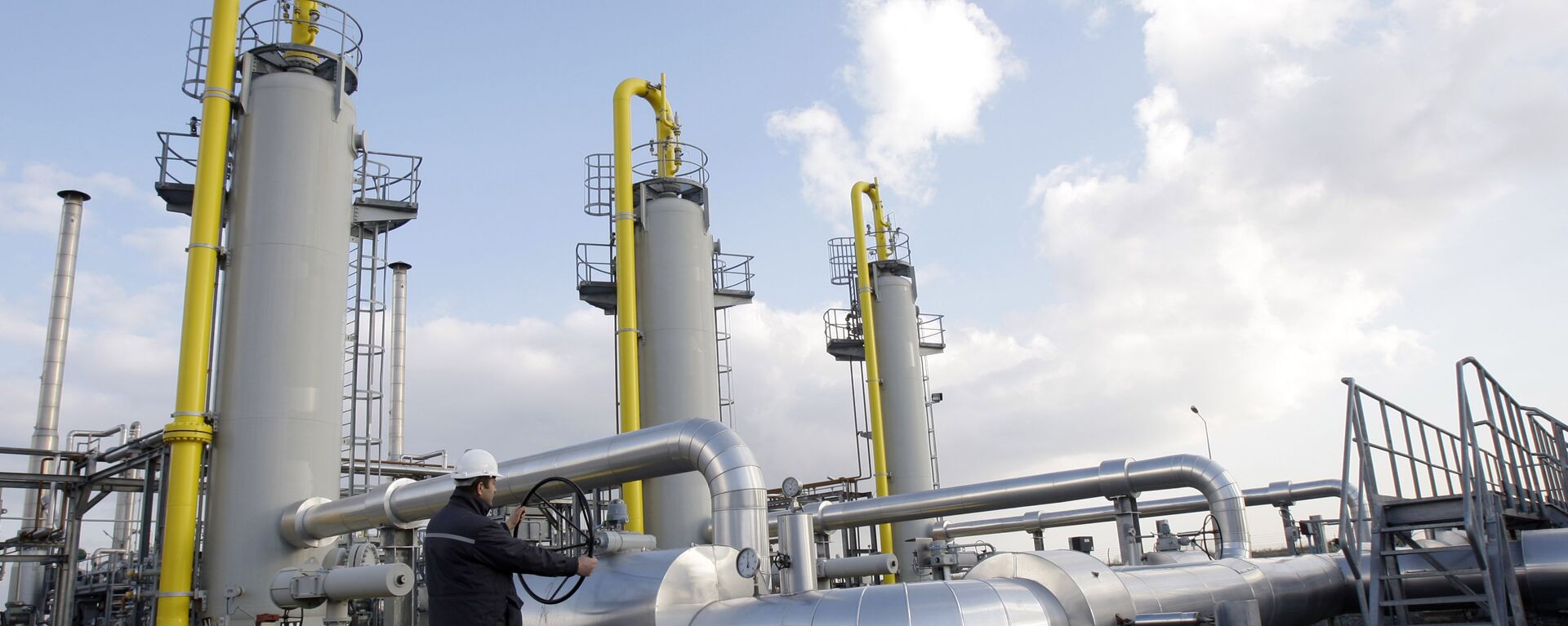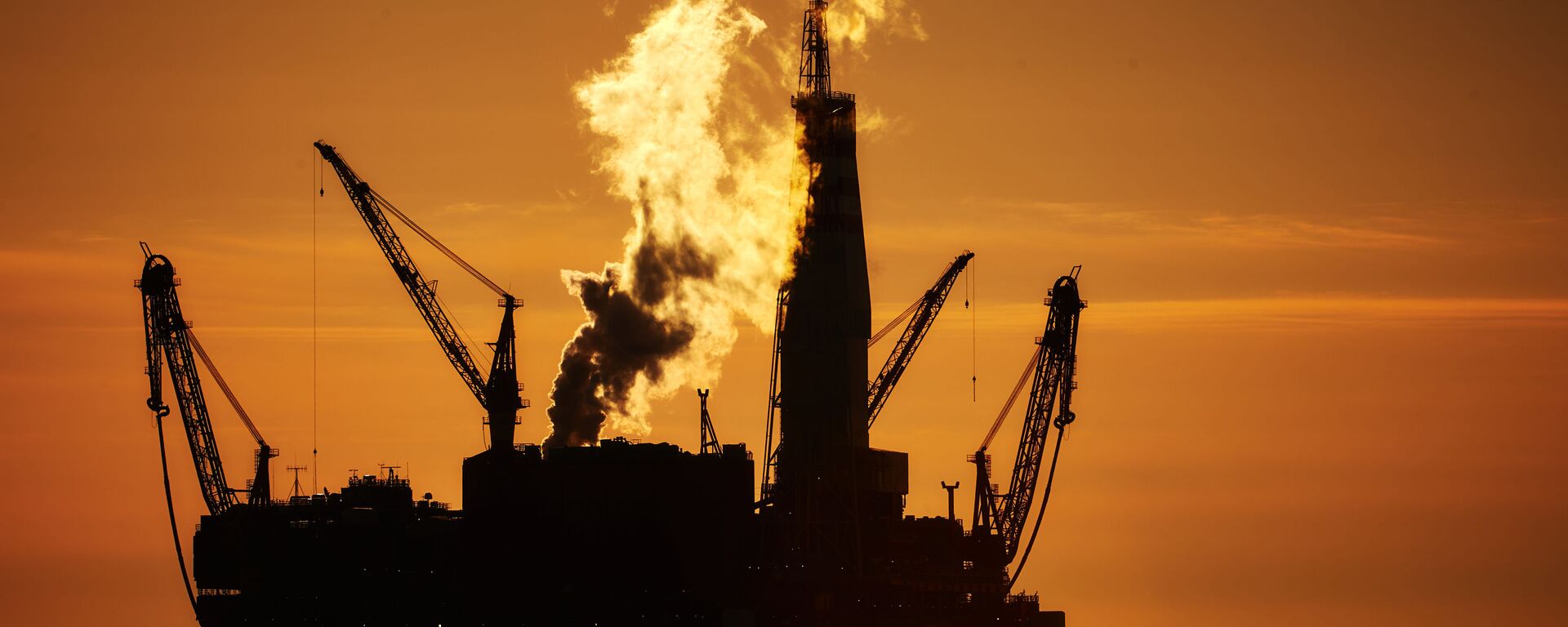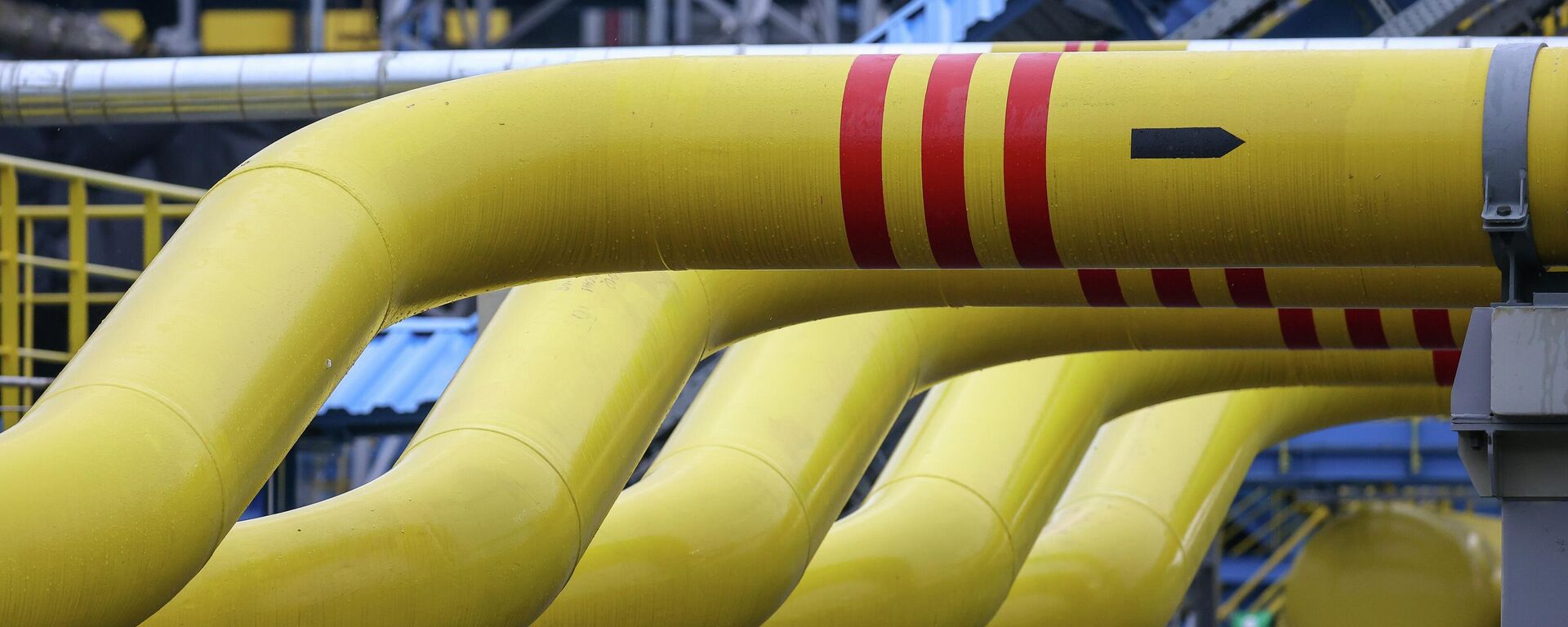https://sputnikglobe.com/20220925/europe-cant-have-cheap-lng-and-short-term-contracts-at-the-same-time-total-energy-ceo-says-1101202954.html
Europe Can’t Have Cheap LNG and Short Term Contracts at the Same Time, Total Energy CEO Says
Europe Can’t Have Cheap LNG and Short Term Contracts at the Same Time, Total Energy CEO Says
Sputnik International
European nations are reeling from a self-inflicted energy crisis sparked by poor planning and exacerbated by a slew of restrictions against Russian oil, gas... 25.09.2022, Sputnik International
2022-09-25T10:51+0000
2022-09-25T10:51+0000
2022-09-25T10:51+0000
energy crisis in europe
energy
gas
total
natural gas
liquefied natural gas (lng)
https://cdn1.img.sputnikglobe.com/img/07e6/01/1a/1092527755_0:82:2917:1723_1920x0_80_0_0_54fc667f84bedbde43b4b50e1ea706ae.jpg
Countries are demanding the impossible by searching for liquefied natural gas (LNG) contracts which are both priced affordably and available on flexible, short-term contract terms, Total Energies CEO Patrick Pouyanne has said.“It’s not a matter of politics. It’s a matter of delivering price and volumes,” Pouyanne emphasized.Qatar expects up to 25 percent of North Field South to be developed by foreign investors, with European leaders and energy officials flocking to the country in search of needed gas after cutting themselves off from Russian gas. German Chancellor Olaf Scholz is expected to arrive in Doha for energy talks on Sunday.Unlike oil, which can be easily diverted from overland pipelines to ocean-going tankers, trains, trucks, and other forms of transport, natural gas necessitates costly, well-developed infrastructure and transmission capacity to be transported and traded between nations. The latter limitation was demonstrated recently by Russia’s Gazprom, which diverted some of the gas ordinarily shipped to European countries for internal use, and has been flaring (burning off) the rest amid a lack of storage capacity.The logistics of LNG and liquefied petroleum gas (LPG) shipped by tankers is even more complex, with special port facilities required to unload the former and to compress, load, deliver and decompress the latter. This adds significantly to time and costs involved in the sale of LNG and LPG natural gas, compared to its pipeline-based analogue.Russian President Vladimir Putin pointed to some of the difficulties involved in gas contracts in October 2021, when European countries began to suffer from energy shocks thanks to their governments’ preference for short-term spot price-based deals, overreliance on ‘green energy’ sources, and the heating up of the gas demand as nations opened up post-Covid.“Generally speaking, the trade in gas on the stock exchange is not very effective [and] carries a lot of risks, because gas isn’t like watches, underwear or neckties, not cars, and not even oil, which can be created and stored anywhere, including in tankers, in anticipation of a certain situation on the market. Gas is not traded this way, it cannot be stored this way,” Putin explained at the time.This past spring and summer, the European Union compounded the region’s energy price crunch and shortages by slapping a ban on Russian oil, coal and electricity purchases, and placing restrictions on Russian-sourced natural gas supplies.Nord Stream 1, the last major pipeline-based route for Russian natural gas supplies into Europe, was shut down for maintenance last month after spending months operating at 1/6 of its ordinary capacity thanks to Western sanctions on its foreign-made turbines. Before the restrictions, the pipeline was capable of pumping up to 55 billion cubic meters of gas per year. Also in the summer, authorities in Ukraine shut down the southern branch of the massive Druzhba oil pipeline, while Warsaw halted the flow of Russian gas through the Yamal-Europe pipeline in Poland and turned it on in reverse flow, stripping Europe of another 33 billion cubic meters per year in gas capacity.Nord Stream 2, which could double trans-Baltic Sea pipeline-based Russian gas deliveries to Europe to 110 billion cubic meters per year, was completed late last year, in spite of US sanctions, but was never turned on after Berlin moved to mothball the project in February.Notwithstanding the crisis in relations between Russia and the West, President Putin and other Russian officials have said repeatedly that Moscow remains prepared to turn Nord Stream 1 and 2 on “tomorrow” if Europe drops its sanctions and agrees to long-term, ruble-based contracts.
https://sputnikglobe.com/20220923/turkey-israel-negotiating-gas-transportation-to-europe---erdogans-spokesman-1101156214.html
https://sputnikglobe.com/20220920/us-senators-seek-to-enforce-cap-on-russia-oil-prices-through-secondary-sanctions-report-says-1101012273.html
https://sputnikglobe.com/20220916/power-of-siberia-2-gas-pipeline-may-replace-nord-stream-2-for-russia-novak-says-1100845152.html
Sputnik International
feedback@sputniknews.com
+74956456601
MIA „Rossiya Segodnya“
2022
News
en_EN
Sputnik International
feedback@sputniknews.com
+74956456601
MIA „Rossiya Segodnya“
Sputnik International
feedback@sputniknews.com
+74956456601
MIA „Rossiya Segodnya“
energy, gas, total, natural gas, liquefied natural gas (lng)
energy, gas, total, natural gas, liquefied natural gas (lng)
Europe Can’t Have Cheap LNG and Short Term Contracts at the Same Time, Total Energy CEO Says
European nations are reeling from a self-inflicted energy crisis sparked by poor planning and exacerbated by a slew of restrictions against Russian oil, gas, electricity and coal imports. Moscow has said repeatedly that it is prepared to resume gas deliveries via Nord Stream 1 and 2 “tomorrow” if the West drops its sanctions.
Countries are demanding the impossible by searching for liquefied natural gas (LNG) contracts which are both priced affordably and available on flexible, short-term contract terms, Total Energies CEO Patrick Pouyanne has said.
“If Europe wants some security of supply, it has a cost. If you want a cheap price for a short duration, the answer obviously is ‘no’,” Pouyanne
said, speaking in Doha, Qatar where Total Energies
penned a $1.5 billion contract Saturday for a 9.375 percent stake in the Gulf kingdom’s North Field South gas project.
“It’s not a matter of politics. It’s a matter of delivering price and volumes,” Pouyanne emphasized.
Qatar expects up to 25 percent of North Field South to be developed by foreign investors, with European leaders and energy officials flocking to the country in search of needed gas after cutting themselves off from Russian gas. German Chancellor Olaf Scholz is expected to arrive in Doha for energy talks on Sunday.

23 September 2022, 21:24 GMT
Unlike oil, which can be easily diverted from overland pipelines to ocean-going tankers, trains, trucks, and other forms of transport, natural gas necessitates costly, well-developed infrastructure and transmission capacity to be transported and traded between nations. The latter limitation was demonstrated recently by Russia’s Gazprom, which diverted some of the gas ordinarily shipped to European countries for internal use, and
has been flaring (burning off) the rest amid a lack of storage capacity.
The logistics of LNG and liquefied petroleum gas (LPG) shipped by tankers is even more complex, with special port facilities required to unload the former and to compress, load, deliver and decompress the latter. This adds significantly to time and costs involved in the sale of LNG and LPG natural gas, compared to its pipeline-based analogue.
Russian President Vladimir Putin pointed to some of the difficulties involved in gas contracts in October 2021, when European countries began to suffer from energy shocks thanks to their governments’ preference for short-term spot price-based deals, overreliance on ‘green energy’ sources, and the heating up of the gas demand as nations opened up post-Covid.
“Generally speaking, the trade in gas on the stock exchange is not very effective [and] carries a lot of risks, because gas isn’t like watches, underwear or neckties, not cars, and not even oil, which can be created and stored anywhere, including in tankers, in anticipation of a certain situation on the market. Gas is not traded this way, it cannot be stored this way,” Putin
explained at the time.

20 September 2022, 13:57 GMT
This past spring and summer, the European Union compounded the region’s energy price crunch and shortages by slapping a ban on Russian oil, coal and electricity purchases, and placing restrictions on Russian-sourced natural gas supplies.
Nord Stream 1, the last major pipeline-based route for Russian natural gas supplies into Europe, was
shut down for maintenance last month after spending months operating at 1/6 of its ordinary capacity thanks to Western sanctions on its foreign-made turbines. Before the restrictions, the pipeline was capable of pumping up to 55 billion cubic meters of gas per year. Also in the summer, authorities in Ukraine shut down the southern branch of the massive Druzhba oil pipeline, while Warsaw halted the flow of Russian gas through the Yamal-Europe pipeline in Poland and turned it on in reverse flow, stripping Europe of another 33 billion cubic meters per year in gas capacity.

16 September 2022, 10:28 GMT
Nord Stream 2, which could double trans-Baltic Sea pipeline-based Russian gas deliveries to Europe to 110 billion cubic meters per year, was completed late last year, in spite of US sanctions, but was never turned on after Berlin moved to mothball the project in February.
Notwithstanding the crisis in relations between Russia and the West, President Putin and other Russian officials have said repeatedly that Moscow remains prepared to turn Nord Stream 1 and 2 on “tomorrow” if Europe drops its sanctions and agrees to long-term, ruble-based contracts.





